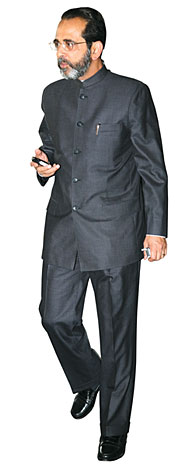 MIN RATNA BAJRACHARYA |
It has been a long time since the Indian ambassador to Nepal Rakesh Sood sent a formal letter to the foreign ministry alleging Nepali Maoists' involvement in providing military training to Indian Maoists. The truth of this has not been uncovered so far. Government indifference to the issue has resulted in speculation and accusations being traded. If the country's largest party is involved in training rebels of a neighbouring country, it is a serious issue. The government's silence will ultimately lead to diplomatic difficulties that could jeopardise Nepal's relation with India. If the government has concrete evidence against the Maoists, it should make it public. Otherwise it should ask for a formal clarification from the party and investigate the issue so the public knows what the truth is.
After giving up their weapons and joining the peace process, the Maoists were elected as the largest party. But if the recent accusations are indeed true, we would have to conclude that the Maoists are not honest to the peace process, and that they are still at war.
The Maoist leaders have refuted Sood's allegations time and again. Maoist Chairman Pushpa Kamal Dahal called it fake publicity while Vice Chairman Baburam Bhattarai said his party would not be involved in such a foolish act. PLA chief Barsaman Pun claimed that it was a part of a larger conspiracy worked out by the government, army and India in unison and challenged Sood to prove his allegations.
Naturally, an accuser is required to present evidence against the accused to prove his allegations, but the Nepali Maoists too need to clarify their relationship with Indian Maoists, with whom they shared a close relationship during Nepal's insurgency. It was only after Nepali Maoists joined the peace process and laid down their arms that an ideological distance was created between them and the Indian Maoists. But there has been little clarification as to where their relationship stands these days.
Earlier, Sood wrote to the foreign ministry demanding action against those involved in hurling shoes at him in Solukhumbu. The government failed to bring the culprit to book. Against this backdrop, another letter with serious allegations has been sent to the ministry. If Sood's allegation is baseless, or driven by an ulterior motive, the government should draw the attention of the Indian government to it. For now, neither side's claims have been proven. Additional information from India and the Maoists is crucial, and this will only be achieved through government investigations.


